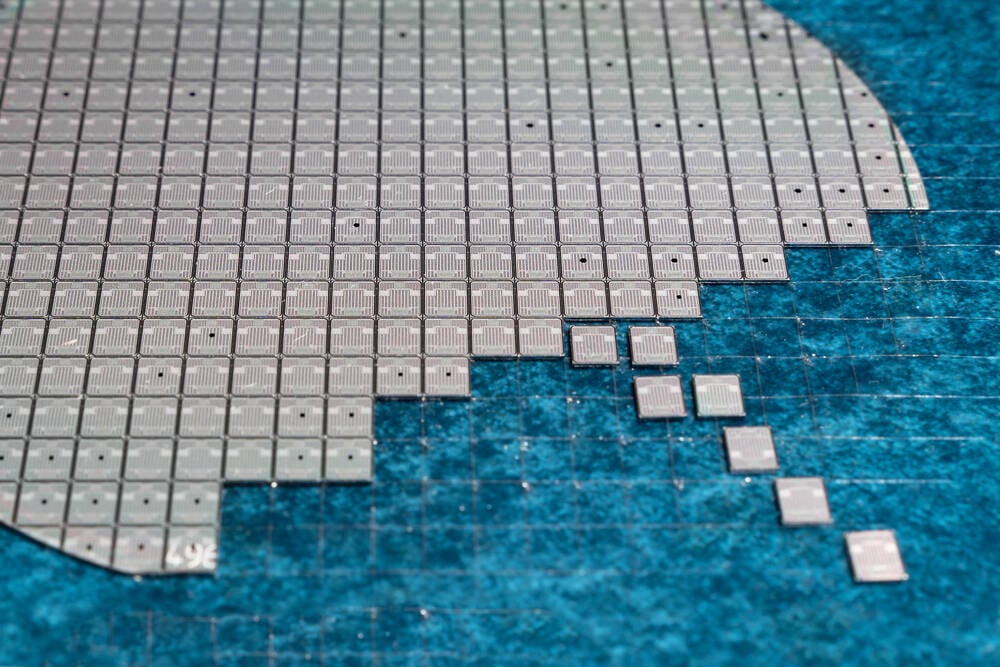UK Ministry Of Defence Gets Into Chipmaking Game, Buys Gallium Arsenide Fab

UK government has stepped in to buy a fabrication plant to secure supplies of gallium arsenide semiconductors used by the armed forces, saving the jobs of up to 100 skilled workers at the same time.
Described by the ruling Labour Party as the only secure facility in the UK with the skills and capability to manufacture gallium arsenide components, the site at Newton Aycliffe, County Durham in north-east England was previously owned by US manufacturer Coherent.
It is understood the Ministry of Defence (MoD) paid about £20 million ($26.7 million) to take ownership of the plant, with an MoD spokesperson telling us the exact figure is commercially sensitive. It will be renamed as Octric Semiconductors UK.
We asked the MoD whether it would be appointing someone to oversee operations at the facility, or if it was going to adopt a more hands-off approach. The spokesperson would only confirm work has begun to implement best practice governance to ensure appropriate financial oversight and secure the company's future.
The purchase was prompted by Coherent looking to divest the facility earlier this year, after major customer Apple ended an agreement with the company. Reports at the time indicated that Apple – whose iPhone 3D sensing function used Coherent's tech – was the biggest buyer of chips manufactured at the Newton Aycliffe site. A strategic review of the factory's future viability was subsequently undertaken, with a potential sale on the cards.
According to the MoD, Coherent is also producing specialist semiconductors used in a number of military platforms, including fighter jets, so the government was likely concerned enough to ensure the fab stays open and does not fall under the control of an undesired entity.
We asked the MoD if it could confirm what type of vital devices are being produced at the site - it was unwilling to talk details. However, gallium arsenide transistors are understood to be useful in sensitive electronic equipment such as satellites, radar and radio communications devices.
In a statement, UK Defence Secretary John Healey said: "This acquisition is a clear signal that our government will back British defense production. We'll protect and grow our UK defense supply chain, supporting North East jobs, safeguarding crucial tech for our Armed Forces and boosting our national security."
The MoD claimed the purchase would also boost UK defence industrial capacity and exports, as the government intends to spend more taxpayer's cash on Octric Semiconductors UK over the coming years.
Coherent itself issued a rather terse statement about the sale, saying the move is "part of the company's ongoing efforts to streamline operations and optimize its global footprint." It omitted any details of the transaction, including to which entity it had sold the Newton Aycliffe plant.
- Bending the rules with flexible non-silicon 32-bit RISC-V chip
- Beijing says state owns China's rare earth metals
- New York set to host $10B semiconductor research facility with IBM and Micron
- The Steve Jobs of supercomputers: We remember Seymour Cray
The transaction stands in contrast to the previous government's handling of the UK's biggest semiconductor manufacturing facility, Newport Wafer Fab in South Wales.
This was sold off to Dutch chipmaker Nexperia in 2021, but officials then got cold feet over that sale after belatedly realizing that Nexperia is itself owned by a Chinese company called Wingtech Technology. The government ultimately used new national security legislation to force Nexperia to sell the site. It is now owned by US-based Vishay Intertechnology. ®
From Chip War To Cloud War: The Next Frontier In Global Tech Competition
The global chip war, characterized by intense competition among nations and corporations for supremacy in semiconductor ... Read more
The High Stakes Of Tech Regulation: Security Risks And Market Dynamics
The influence of tech giants in the global economy continues to grow, raising crucial questions about how to balance sec... Read more
The Tyranny Of Instagram Interiors: Why It's Time To Break Free From Algorithm-Driven Aesthetics
Instagram has become a dominant force in shaping interior design trends, offering a seemingly endless stream of inspirat... Read more
The Data Crunch In AI: Strategies For Sustainability
Exploring solutions to the imminent exhaustion of internet data for AI training.As the artificial intelligence (AI) indu... Read more
Google Abandons Four-Year Effort To Remove Cookies From Chrome Browser
After four years of dedicated effort, Google has decided to abandon its plan to remove third-party cookies from its Chro... Read more
LinkedIn Embraces AI And Gamification To Drive User Engagement And Revenue
In an effort to tackle slowing revenue growth and enhance user engagement, LinkedIn is turning to artificial intelligenc... Read more

